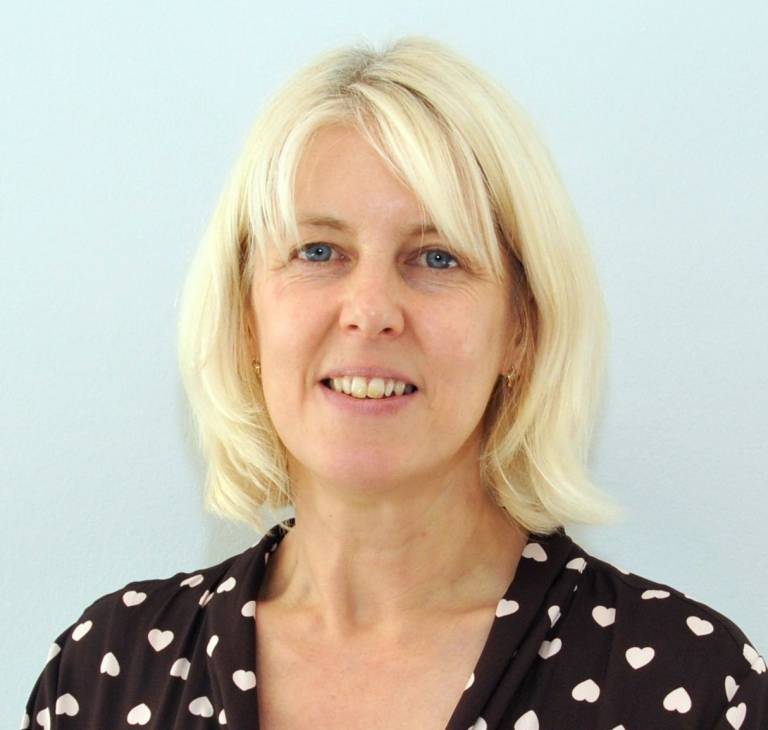Q&A with Professor Caroline Sabin
19 July 2022
We speak to Professor Caroline Sabin, Professor of Medical Statistics and Epidemiology at the UCL Institute of Global Health, on being named a Fellow of the Academy of Medical Sciences for her contribution to the HIV research field.

What does your election to the Fellowship of the Academy of Medical Sciences mean to you?
It’s certainly a great honour to be elected and to feel that my contribution to the HIV research field has been recognised by my academic peers, including many who are not directly involved in HIV research. It also gives me a fantastic opportunity to contribute to some of the policy reports and statements that are published by the Academy, covering a huge range of health challenges faced by our society today.
You’ve initiated, co-lead and been a part of numerous large-scale HIV cohort studies and collaborations, both in the UK and abroad. What’s next?
When I set up a cohort or initiate a collaboration, I’m always doing this because this is the most efficient way for us to answer key questions about HIV and its impact on health. I always say that HIV is the virus that just keeps on giving - as soon as we think we fully understand the consequences of HIV infection for the individual, the virus throws something new at us, and this means that new research questions continue to arise. Interestingly, although most of my research over the past two decades has been in extremely large cohorts, the information that can be collected through these cohorts is fairly limited, restricting the questions that they can answer. So more recently, I’ve been working with smaller cohorts which have greater flexibility to answer a range of research questions. Within the POPPY study, this means that we will continue to study new aspects of comorbidity – I work with a fantastic team of researchers and PhD students who bring a range of complementary skills to our group, and this has allowed us to explore exciting methodology to answer questions about the underlying causes and aetiology of co-morbidity in people with HIV. This should, ultimately, mean that our research can help to guide the development of effective interventions to prevent and manage co-morbidities in this group.
Outside of my own specific area, I think that many of us are guilty of continuing to work with our own established networks of collaborators whilst not looking around us to identify new collaborators who are ‘closer to home’ within the Faculty. I hope that as we move back to our ‘new normal’ way of working, I will have the opportunity to re-connect with colleagues within the Faculty, particularly those working in similar fields, but in a non-HIV setting.
Will your fellowship enable you to contribute to medical and health issues outside of your research area? If so, are there any issues you are particularly interested in?
The fellowship brings with it many opportunities to get more closely involved in policy making, both in the UK and internationally. Another important part of the Academy's work is it’s mentoring programme. I’m already committed to UCL’s mentoring programme, but this will provide an exciting opportunity to support the career development of a wider range of biomedical and health researchers from outside of UCL.
Being recognised for your contributions to health research in the UK is a major achievement – how do you switch off and relax? Have you got a summer holiday coming soon?
As my colleagues will tell you, I’m very good at switching off and relaxing – it’s so important to find a good balance between work and home life, and I’m extremely lucky to have a husband who appreciates the importance of my work but who also ensures that I stop working at a sensible time each evening to spend time with him! We generally enjoy anything related to food and drink, and I’m catching up on missed opportunities to watch live gigs and musicals. For holidays, I love travelling, walking in mountains and visiting new places, and if I can combine this with eating and drinking, then I’m in my element! In August we’ll be walking in the Douro Valley in Portugal, hopefully learning more about the production of Port, and the history and culture of Northern Portugal. I can’t wait!
Read Professor Sabin's academic profile
 Close
Close

